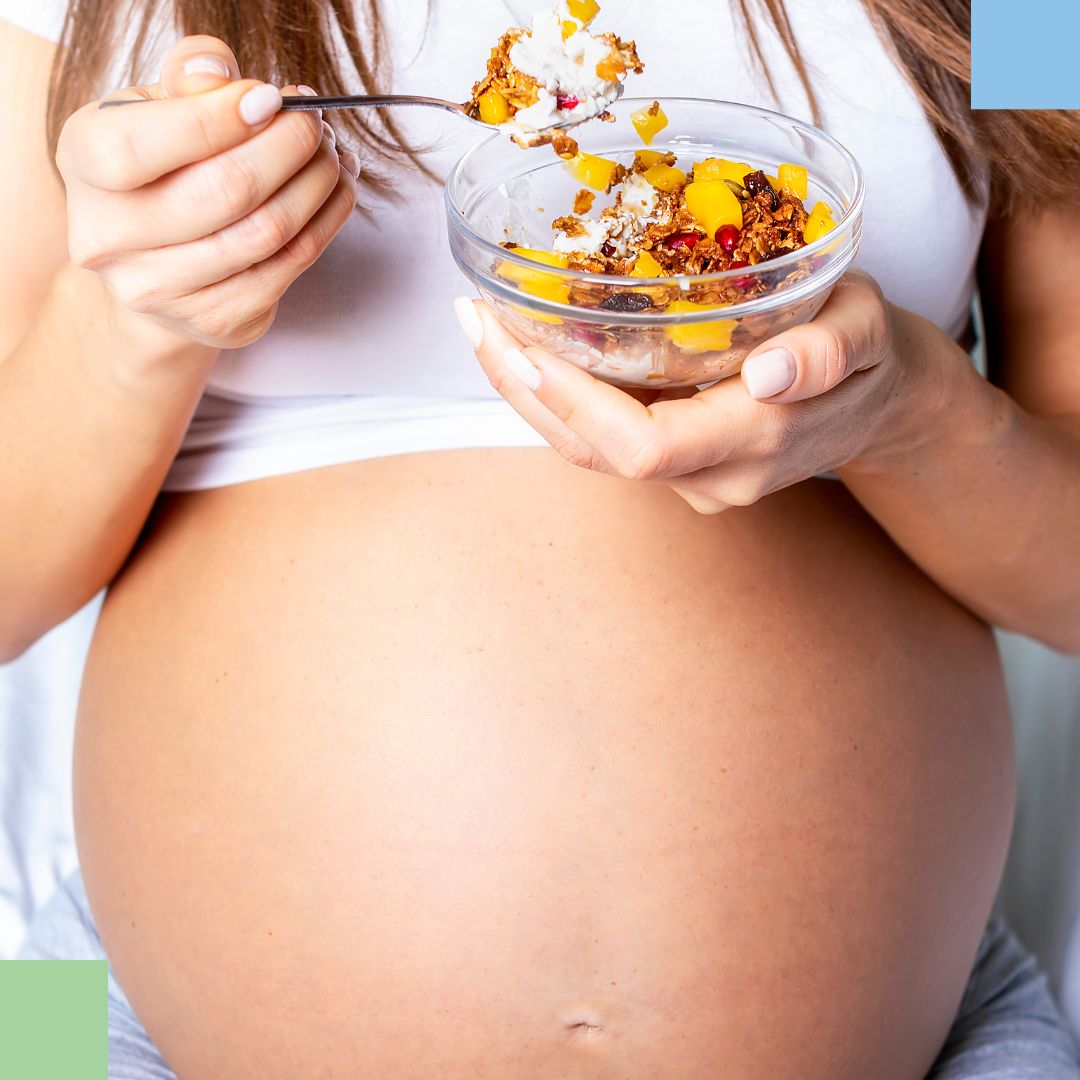
A Healthy Diet for a Healthy Baby
Everyone knows that “you are what you eat,” but we also know that your baby’s healthy prenatal development is also rooted in your pre-pregnancy and pregnancy diet.
5 Foods & Nutrients to Focus on When You’re Pregnant
We recommend that women prepare their bodies before planning to get pregnant. In fact, optimizing their health is one of the best things they can do to enhance fertility naturally.
Dietary recommendations and restrictions will change slightly once you find out you’re pregnant, and your fertility specialist and OB/GYN will review them with you. However, these nutrients are almost always getting the green light and are proven to benefit pregnant women and their developing babies.
1. Increase caloric intake throughout pregnancy
Pregnant women are generally advised to eat about 300 calories more than usual. However, this is just an average throughout pregnancy. Your healthcare provider can provide personalized recommendations based on your current weight and medical history.
In most cases, we recommend patients consume:
- About the same number of calories for the first trimester (weeks 1 – 12), while focusing on getting enough protein, folic acid, and other nutrients essential for healthy brain and neural development.
- 300 – 340 extra calories during the second trimester (weeks 13 – 26).
- Around 400 to 450 calories during the third trimester (weeks 27 onward).
If you opt to breastfeed, you’ll maintain a higher caloric intake to ensure you and baby are both getting sufficient nutrients for healthy postpartum recovery and growth.
2. Take a daily prenatal vitamin
Most physicians recommend that patients take prenatal vitamins once they’re ready to get pregnant. This ensures their bodies are getting everything they need – and that their developing fetus has access to some of the most essential nutrients – like folic acid – from the very beginning.
3. Ensure you’re getting 400 mcgs of folic acid daily
Folic acid is a B vitamin that supports healthy new cell growth, including red blood cells. It is an exceptionally essential nutrient for a freshly fertilized egg because, as the Johns Hopkins Medicine says:
A critical period of fetal development happens during the early weeks of pregnancy, often before a woman is aware she is even pregnant. One of the earliest structures to form is the neural tube. This structure is flat at first but rolls into a tube by only one month after conception to become the brain and spinal cord.
Without enough folic acid, the cells in this structure can’t function or grow properly and the tube doesn’t close. The spine, skull, and brain can be affected, with open or closed abnormalities.
A high-quality, daily prenatal vitamin should have you covered (ensuring the label states it contains folic acid). Fortified foods, such as pasta, breads, and cereals also list folic acid in the nutritional label.
However, we always recommend getting essential nutrients from whole fresh foods. Examples of foods high in folic acid are:
- Dark, leafy green vegetables
- Legumes (dried beans and peas)
- Fruits (oranges, bananas, melons, and most berries).
Incorporate these into your diet as much as you can.
Bonus Tip: Smoothies are a pregnancy nutritional ally, especially if you have morning sickness during the first few months. Click Here for pregnancy-friendly smoothie recipes.
4. Eat 8 to 12 ounces of low-mercury fish each week
Healthy, low-mercury fish provide your body with lean protein and healthy Omega-3 fatty acids. We recommend eating about 8 to 12 ounces of healthy fish weekly (about two to three servings).
Rather than worrying about which fish are healthy and which aren’t – just remember the SMASH acronym.
- Salmon
- Mackerel (but not King Mackerel)
- Anchovies
- Sardines
- Herring
These can be incorporated as an entree, in salads and wraps, or worked into dipping sauces.
5. Focus on lean meats, legumes, and proteins
Lean meats are also sources of vitamin B and iron, all of which are good for you and baby – and help prevent pregnancy anemia.
- Lean pork, chicken, turkey, and beef are all good options.
- Eggs are also a “perfect food” and can be prepared a variety of ways. A single egg contains a little bit of almost every nutrient a human needs.
- Unless your doctor says otherwise, 1% or 2% milk dairy products are better than whole or non-fat milk while pregnant.
- If dairy is not your thing, soy milk is considered the best non-dairy option for pregnant women, followed by almond milk.
To increase plant-based foods high in protein, look for recipes that include:
- Quinoa
- Lentils
- Tofu
- Nuts
- Chickpeas (garbanzo beans)
- Hemp seeds
- Beans
Your pregnancy diet should be a continuous topic during prenatal checkups, so keep a journal of what you eat so you can discuss any necessary changes or additions as your pregnancy progresses.
6. Lots (and lots) of fresh veggies & fruits
Whole, fresh, and non-processed foods are always best for the body, especially when pregnant. Think about “eating the rainbow” so you incorporate lots of different colors of vegetables and fruits.
Again, if morning sickness is an issue, soups can be a wonderful way to get lots of veggies into a single bite – or hide veggies that aren’t your favorite.
When it comes to fruits, berries are particularly nutritious for you and baby because they have lots of fiber, vitamin C, and antioxidants – while remaining low on the glycemic index (meaning they aren’t as likely to spike blood sugar levels).
7. Look for whole grain pasta, breads, cereals, and tortillas
Ensure the ingredient labels read “whole grain” when shopping for pasta, bread, cereal, and other grain-based products. Whole grains have more fiber, protein, and other nutrients, which are better for the body and support better blood sugar balance.
We also recommend eating more oats, which can be made into oatmeal, healthy cookies, granolas, or added to meatloaf in lieu of breadcrumbs.
GIVF Fertility Takes a Whole-Body Approach to Fertility & Pregnancy
After decades of helping women get pregnant, GIVF Fertility knows first-hand how essential a healthy diet is for growing healthy babies. Contact us to schedule your fertility consultation; work with top fertility specialists who go beyond the clinical to give our patients – and their babies – the healthiest start possible.





